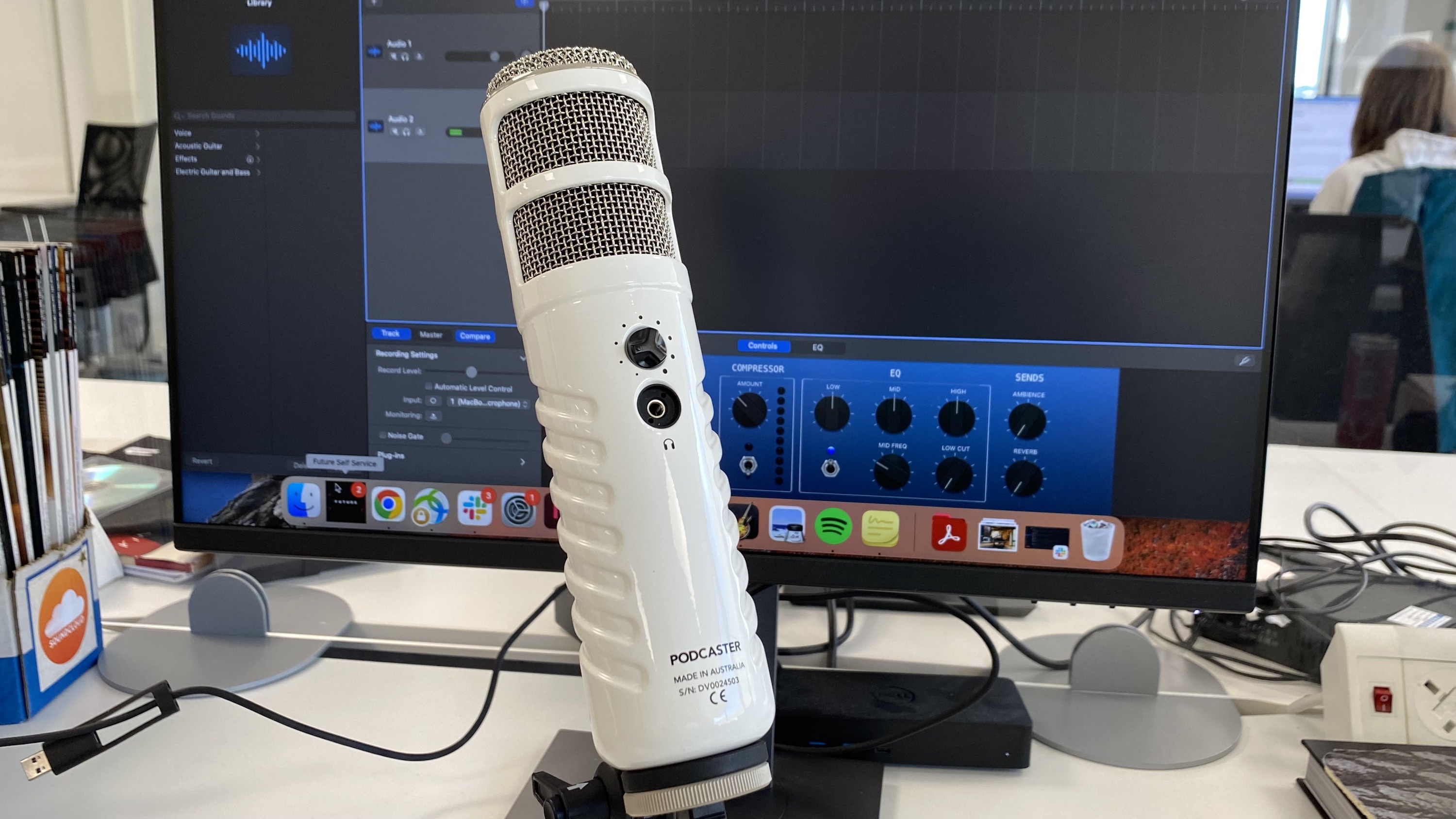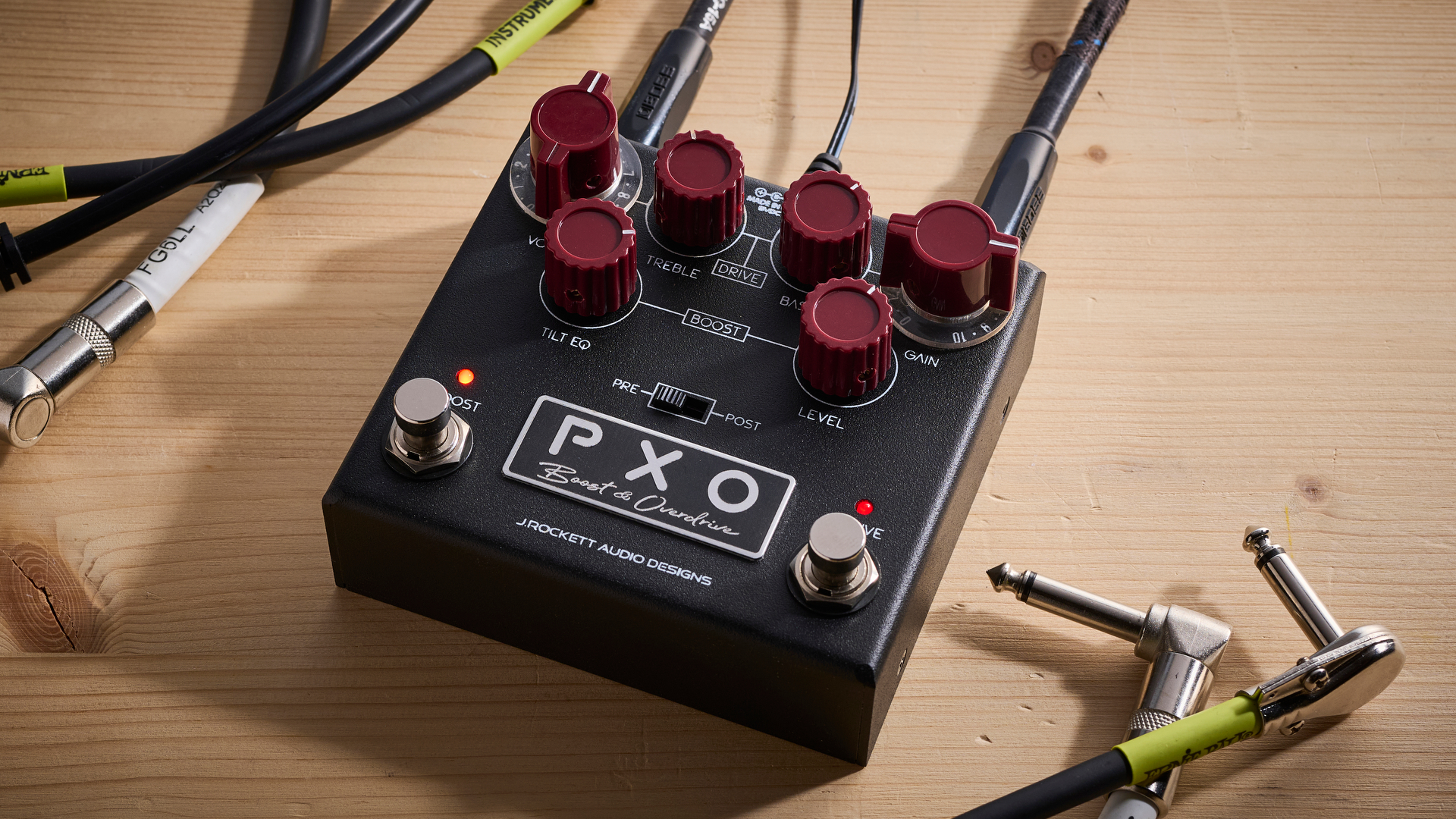MusicRadar Verdict
The Rode Podcaster is among the more expensive USB mics on the market, but largely backs its price tag up with excellent results and simple operation.
Pros
- +
Great design
- +
Rich low-end tone
- +
Built-in shock mount and pop filter
Cons
- -
There are cheaper podcast-specific mics available
MusicRadar's got your back
What is it?
While there’s no shortage of inexpensive USB microphones, finding specialist versions which fulfil a specific need are less common. The Rode Podcaster is one such mic however, and has a few neat tricks up its sleeve which give it an edge over general-purpose mics for speech and vocal applications.
As the name makes perfectly clear, this is a mic aimed squarely at the burgeoning podcast market. Podcasts, you’ll have noticed, have become A Very Big Deal, with shows covering just about any topic you can think of and some of the biggest celebrity names getting involved. A good microphone is essential, and a good microphone designed specifically for the medium should ensure great results, right?
To meet this need, Rode has created one of the quickest, easiest ways to capture high-quality speech performance. The Rode Podcaster is a dynamic USB mic that delivers all the benefits of USB connectivity with the performance of a dedicated speech mic. Going dynamic is an interesting choice; most USB mics are condenser, but by employing a 28mm neodymium capsule the Podcaster is going straight up against higher-priced podcasting microphones like the Shure SM7B. It’s a bold choice, but one that makes sense for capturing those deep, rich vocal sounds that are synonymous with podcasting.
Competition is fierce though. The Rode Podcaster is up against some great microphones - at the value end from other budget podcasting microphones and at the higher end from more traditional XLR mics. How does it stand up? Let’s take a look in our Rode Podcaster review.
Performance & verdict
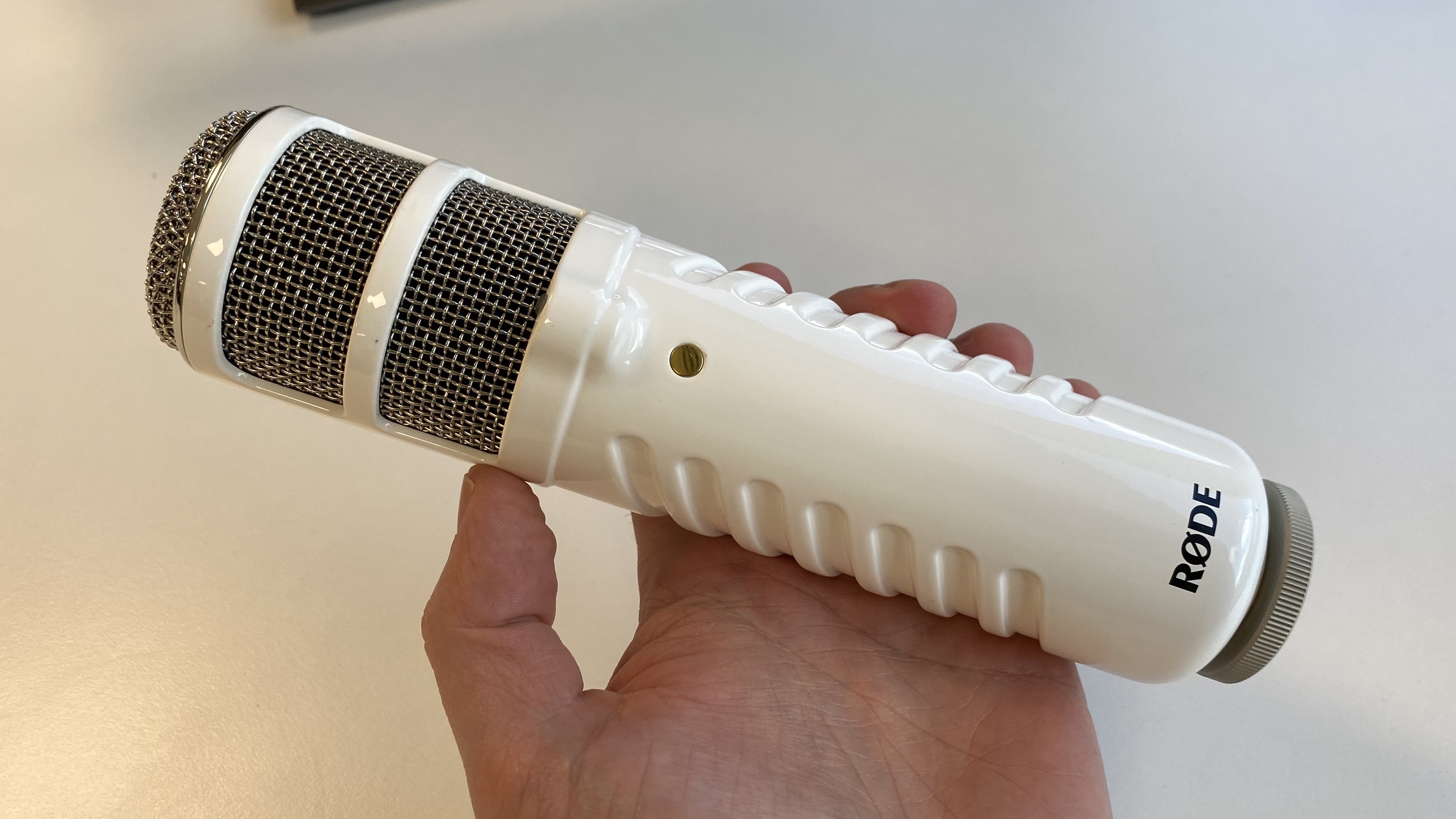
When you’re recording speech, as opposed to music or vocals, you’re looking at mics with a different set of characteristics altogether. The basic functionality will be the same, but the results are very different. With music, for example, you’re looking for accuracy and clarity, aiming for as near to perfect reproduction of the sound source as possible. With speech, on the other hand, there is more of a desire to add extra polish or sheen to a voice. You’ll know if you’ve ever listened to the radio how there’s a fullness and depth to a voice than there is naturally - this isn’t an accident, but it does require certain equipment or tools to realise.
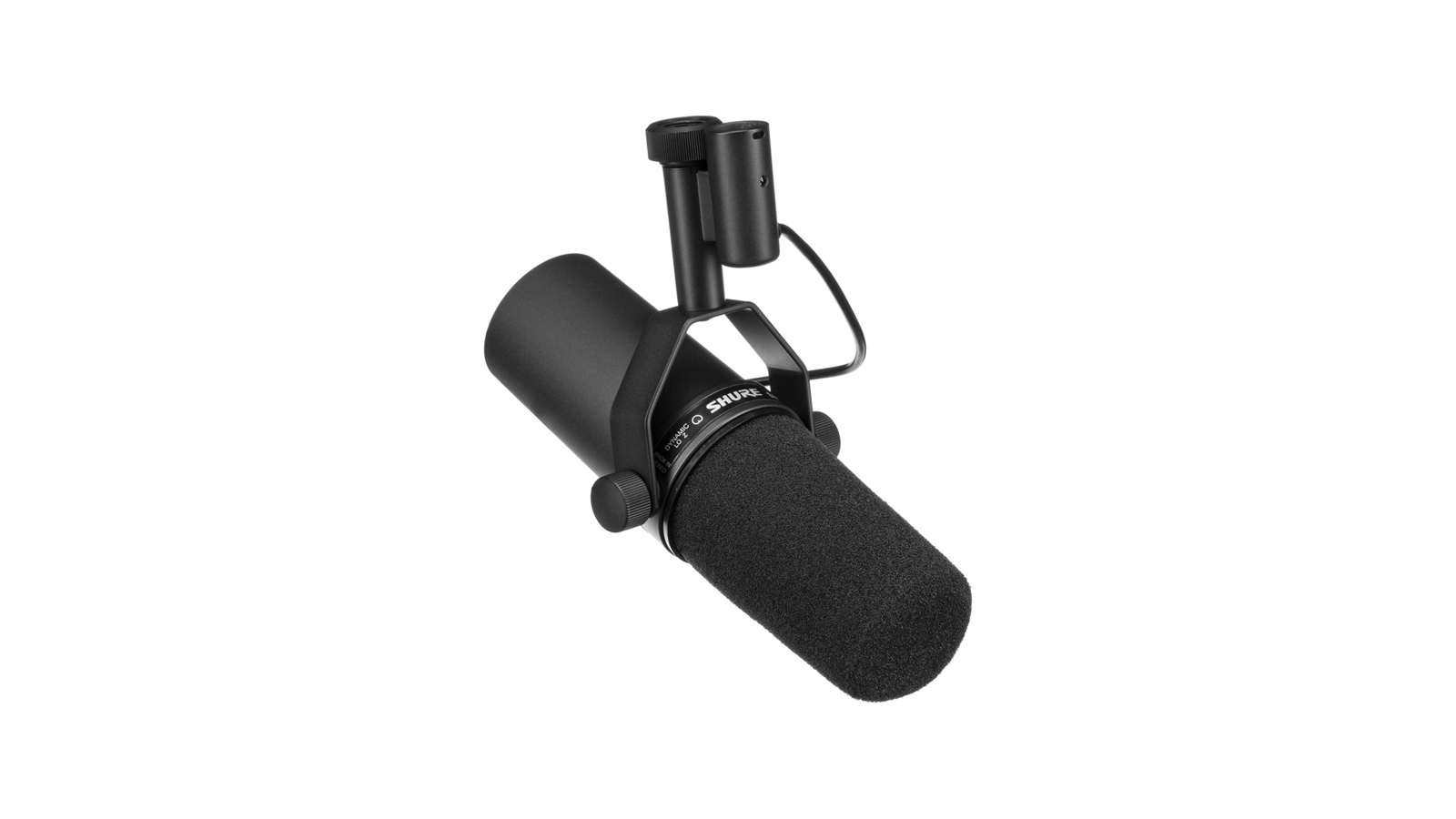
Which brings us to the Rode Podcaster. Straight out of the box you’ll see this is a large, hefty beast of a microphone. The all-metal chassis gives you confidence it’s made to last - Rode gear usually is - although it does demand a suitable mic stand to keep it stable. It’s a shame there isn’t one in the box but we guess Rode is assuming the Podcaster is an upgrade and the user will have a stand or boom arm on which to place the mic. We are big fans of the glossy white finish, which makes a nice change from the usual matte black we see in this category. Form-wise, the Podcaster is an end-address mic, so you’ll need it pointing directly at you although we found the best results came speaking slightly off-axis to reduce plosives, even despite the built-in pop filter.
In terms of controls, there’s not a huge amount on the mic itself - the theory is you’d use your recording software for checking levels - but there is a single LED which does at least give some visual feedback if you’re going way over the threshold. Finally, there is a 3.5mm jack for headphone monitoring and a control for the headphone volume.
Tonally, the Rode Podcaster delivers that silky smooth broadcast voice you’d expect, with nice pronunciation around the low and mid ranges, and a nice sparkle around the top end. If you’re looking for a helping hand from the mic to give the best results then there are perhaps better options - the Shure MV7 comes with software containing preset voice EQ settings, for example - but if your workflow involves processing the audio and adding compression afterwards then this isn’t a problem.
To sum up, the Rode Podcaster is not a cheap mic, but it still represents superb value. It’s well made, nicely designed and does a superb job of capturing a version of your voice which sounds great. The built in pop filter and shock mount mean there’s less extra gear you’ll need to take full advantage, and the USB connectivity means you need only the mic and a laptop to start your own podcast empire.
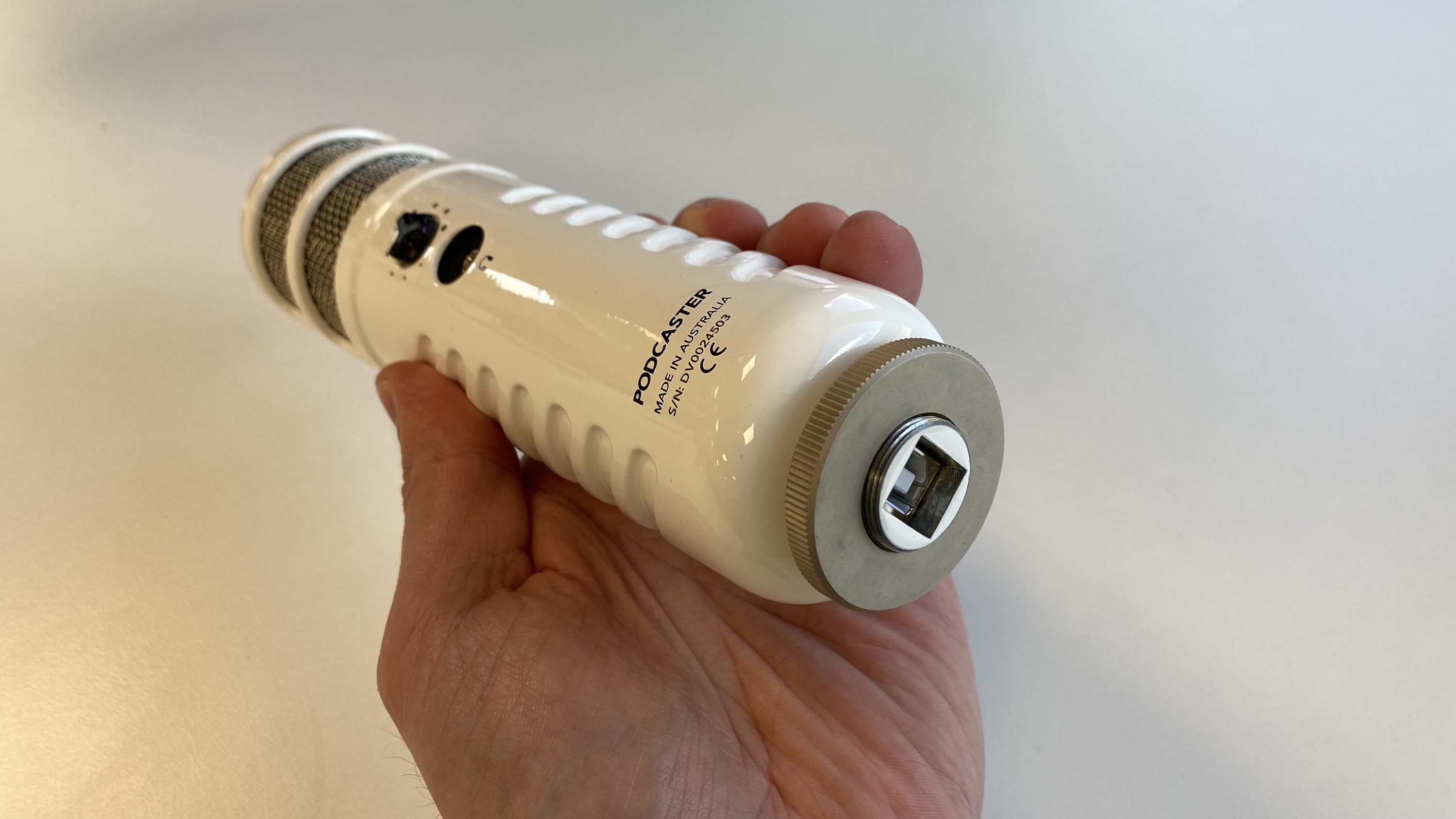
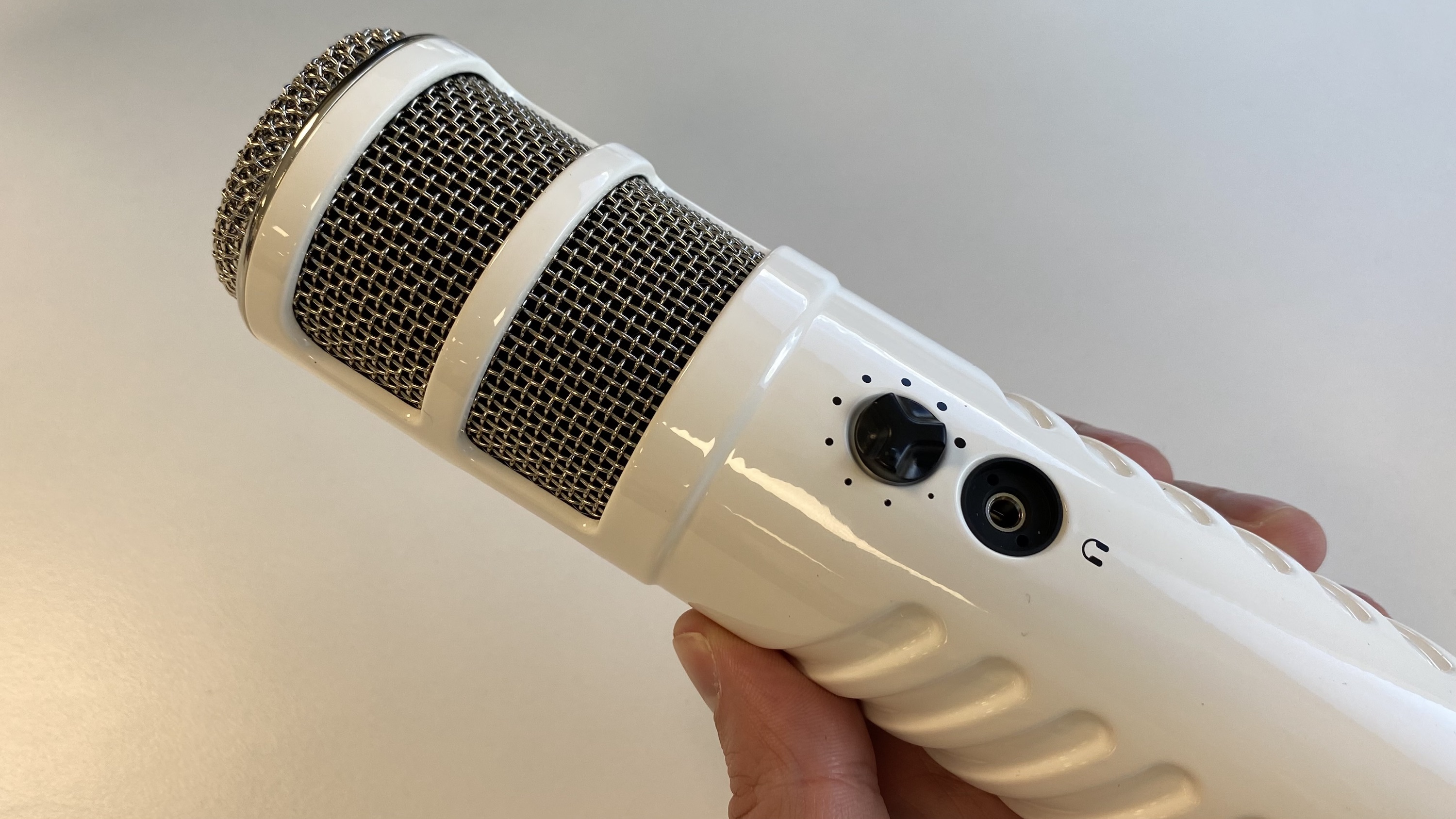
Hands-on demos
Audio Hotline
Gordon Laing
Podcastage
Specifications
- Type: Dynamic
- Frequency range: 40 - 14,000 Hz
- Resolution and sample rate: 18 bit up to 44 - 96 kHz
- Connections: USB, 3.5mm headphone input
- Controls: Headphone volume
- Contact: Rode
Chris Corfield is a journalist with over 12 years of experience writing for some of the music world's biggest brands including Orange Amplification, MusicRadar, Guitar World, Total Guitar and Dawsons Music. Chris loves getting nerdy about everything from guitar and bass gear, to synths, microphones, DJ gear and music production hardware.
“I used everything I knew about music”: How Green Day exceeded expectations with their most ambitious song
YouTube just added AI tools that makes musicians, library music and video editors redundant
“Every one of them said yes without hesitation": Hank Marvin and Roger Taylor have just remade a '60s classic for charity
